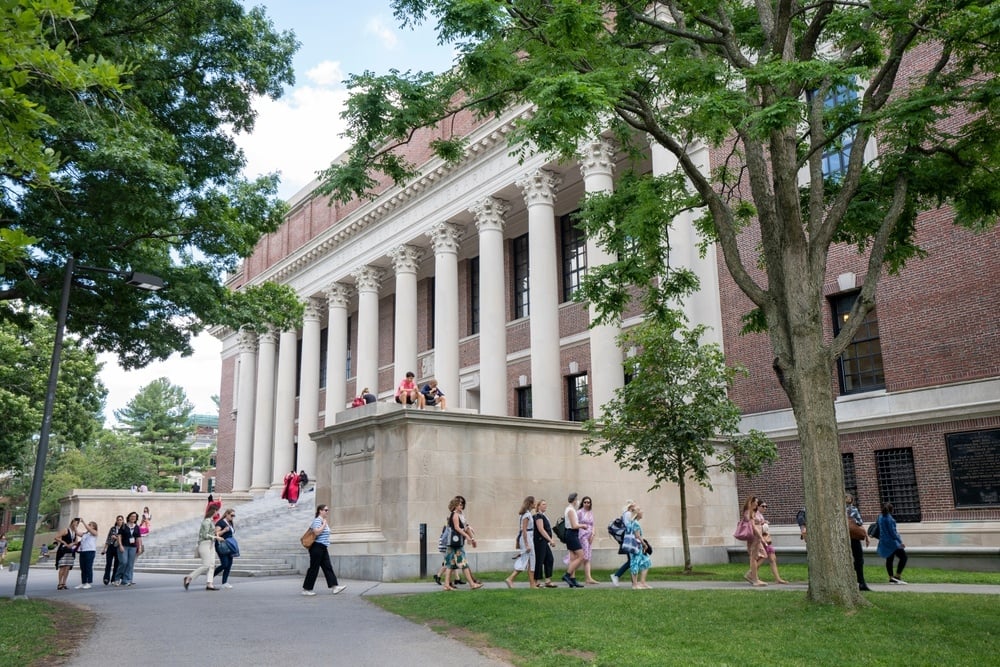In higher education, student retention is a critical metric that signifies the success of an institution in keeping its students enrolled and progressing toward graduation.
One influential factor in student retention is the quality and engagement of campus events. Engaging campus events foster a sense of community, enhance student engagement and contribute to a positive campus atmosphere, all of which are key components of student retention strategies.
The Connection Between Campus Events and Student Retention
Campus events are more than just social gatherings; they are integral to creating a vibrant campus culture that supports student success. One of the most significant benefits of campus events is their ability to improve student retention by encouraging student engagement. These connections help students feel more integrated into campus life, reducing feelings of isolation and increasing their commitment to their education.
10 Ways Events Influence Campus Life
Meticulous event planning and management have a profound impact on the overall campus atmosphere. When events are well-organized and cater to the diverse interests of the student body, they enhance the campus experience and promote a sense of community. This positive atmosphere is a key factor in how to improve student retention.
Here are some ways great event and venue management improve the college experience and contribute to student retention:
1. Enhancing Student Engagement
Well-planned events attract student participation and involvement, leading to increased engagement and a stronger connection to the campus community. When students are actively engaged in campus life, they are more likely to feel a sense of belonging, which significantly contributes to student retention. Engaged students are also more likely to take advantage of the resources and opportunities available to them, enhancing their overall college experience.
2. Promoting Inclusivity
Inclusive events that cater to diverse student populations ensure that all students feel valued and included, which is essential for student retention strategies in higher education. By offering a variety of events that appeal to different cultures, interests and backgrounds, colleges can create an environment where every student feels welcome. This inclusivity fosters a supportive campus culture that can help improve student retention by making students from all walks of life feel at home.
3. Building Community
Events that encourage social interaction help students build relationships with their peers, fostering a sense of community and belonging. When students form strong social bonds, they are more likely to stay engaged with their studies. A sense of community can also provide emotional support, reducing feelings of isolation and homesickness, which are common challenges that can negatively impact student retention.
4. Supporting Academic Success
Academic-related events such as workshops, seminars and guest lectures provide students with additional learning opportunities and resources that support their academic journey. These events can enhance the educational experience by offering new perspectives and knowledge that complement classroom learning. By supporting academic success through these events, institutions can help students achieve their academic goals, which is a crucial component of effective student retention strategies.
5. Providing Stress Relief
Recreational and entertainment events offer students a break from their academic responsibilities, reducing stress and promoting mental well-being. College can be a demanding time, and stress relief is essential for maintaining student health and happiness. Events like movie nights, concerts and sports activities give students a chance to relax and recharge, making them more resilient and better equipped to handle their academic challenges.
6. Enhancing Campus Safety
Effective venue management with robust risk and safety management systems ensures that students can participate in events without concerns for their safety, contributing to a secure campus environment. Safety is a top priority for student retention, as students and their families need to trust that the campus is a safe place. By proactively addressing potential risks and ensuring that all events comply with safety standards, institutions can create a secure environment that supports student retention.
7. Encouraging Student Leadership
Involving students in the planning and execution of campus events fosters leadership skills and provides them with a sense of ownership and responsibility. Student leadership opportunities can be a significant factor in personal development and career preparation. By empowering students to take charge of events, institutions help them build confidence, organizational skills and a sense of accomplishment, all of which contribute to their overall success and retention.
8. Showcasing Campus Resources
Events can highlight various campus resources and support services available to students, making them more aware of the help they can access when needed. Awareness of available resources, such as tutoring, counseling and career services, is critical for student success. When students know where to turn for help, they are more likely to seek support proactively, which can prevent minor issues from becoming major obstacles to retention.
9. Boosting School Spirit
Events that celebrate campus traditions and achievements boost school spirit and pride, making students more likely to stay enrolled and graduate from their institution. School spirit is a powerful motivator that can enhance the college experience. When students feel proud of their institution and connected to its traditions, they are more likely to remain committed to their studies and see their education through to graduation.
10. Facilitating Networking Opportunities
Events that bring together students, alumni and professionals provide valuable networking opportunities that can support students' career aspirations and post-graduate success. Networking is an essential aspect of professional development, and providing students with opportunities to connect with potential mentors and employers can significantly enhance their future prospects. By facilitating these connections, institutions can help students build valuable relationships that contribute to their long-term success and retention.
Conclusion: How Venue Management Systems Help Campuses
In conclusion, campus events play a pivotal role in student retention by nurturing a sense of community, enhancing student engagement and promoting a positive campus atmosphere.
Effective venue management, particularly with integrated risk and safety management systems, ensures that these events are safe and successful. By prioritizing meticulous event planning and management, institutions can significantly improve the college experience, ultimately supporting student retention and success.
That’s where Momentus comes in. Our robust, purpose-built venue and event management software helps colleges and universities maximize the value of all campus event spaces — including sports complexes, performing arts, conference services, student union, camps and more — to help you improve efficiency, grow revenue and deliver better outcomes. Request a demo today.






.avif)
